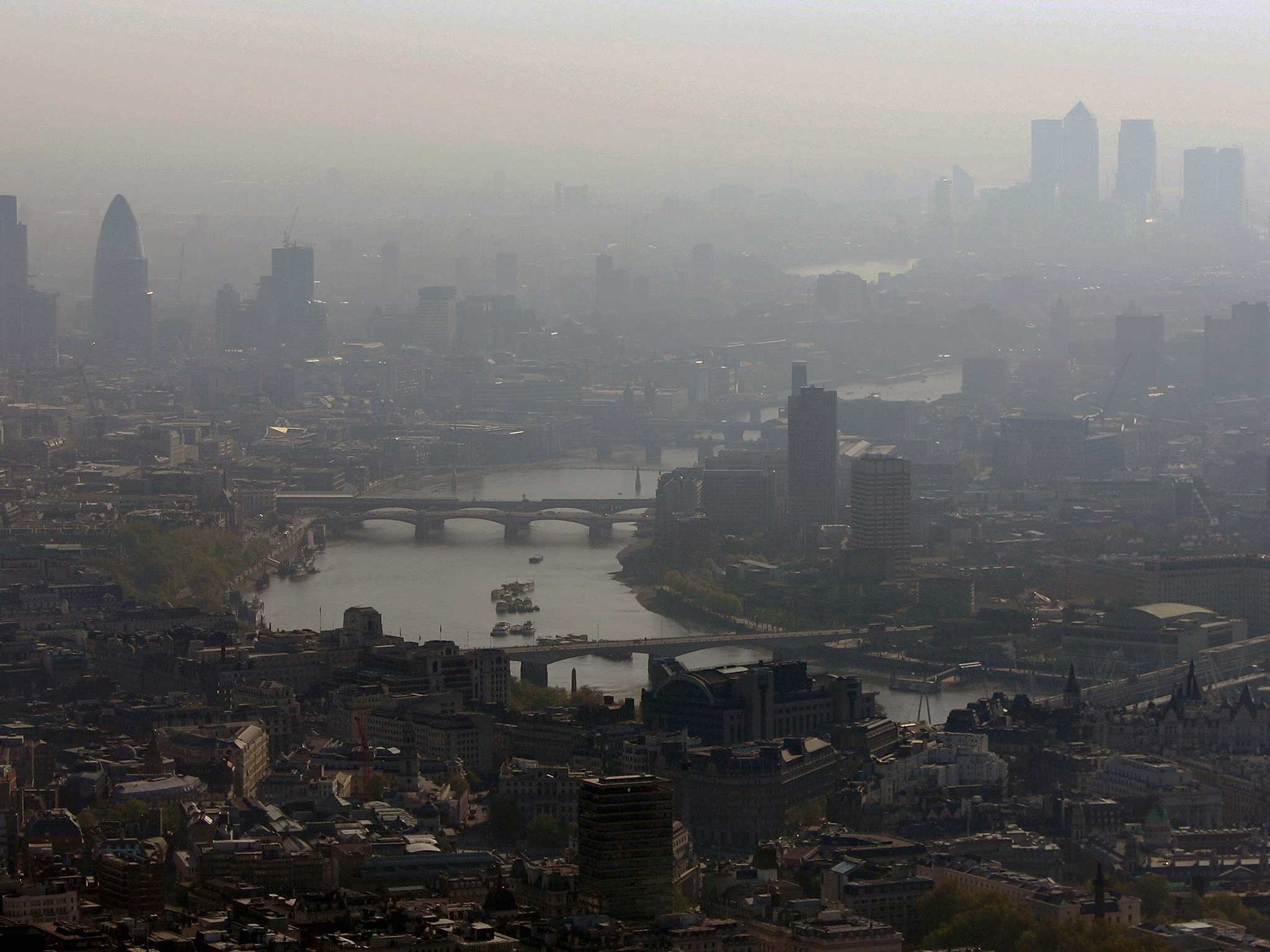'Single most important act' to improve child health is to stop using fossil fuels, expert says
'Fossil fuel combustion inflicts a multitude of serious health and developmental harms in children'

The “single most important action” to improve the health of the world’s children would be to stop using vast amounts of fossil fuels, a leading health expert has claimed after reviewing scientific research on the effects of air pollution.
Doing so would lead to fewer children suffering from asthma, attention-deficit hyperactivity disorder (ADHD) and developmental problems that lower IQ, Professor Frederica Perera said. There would also be fewer premature babies and children born with a low birth weight.
And curing “our addiction to fossil fuel” would reduce the number of children who die because of floods, drought and malnutrition and fewer children would suffer from infectious diseases, respiratory illnesses and mental health problems resulting from political instability.
Writing in the journal Environmental Health Perspectives, Professor Perera, director of the Columbia Center for Children’s Environmental Health (CCCEH), said: “Fossil fuel combustion inflicts a multitude of serious health and developmental harms in children through its emissions of toxic particles and gases and carbon dioxide, a pollutant that is a major driver of climate change.
“Each of the myriad pollutants released from the burning of fossil fuels is capable of exerting multiple and cumulative adverse effects, either directly or indirectly.
“The developing foetus and young child, and especially the poor, are most vulnerable to the impacts of both toxic air pollutants and climate change.”
Arguing there was a “strong moral imperative” to reduce the burning of fossil fuels – beyond the scientific and economic arguments about tackling climate change – Professor Perera said there was a need to create a “child-centred air pollution and energy policy”.
“The developing foetus and young child are more biologically and psychologically vulnerable than adults to the many adverse effects of toxic air pollutants and physical trauma, psychosocial stress, nutritional deprivation, infectious agents, and heat waves associated with climate change from fossil fuel combustion,” she added.
She said this was partly because children’s immune systems, their bodies’ abilities to control temperature and deal with toxins were all immature.
The World Health Organisation found in 2006 that children are more likely to be exposed to air pollution than adults.
And more recent studies have shown that the time spent in the womb and early childhood are “windows of susceptibility both to genetic damage” and other changes to genes that can have lifelong effects and even be passed on to future generations, Professor Perera wrote.
The poorest children are the ones most likely to be at risk. In the US, they had a “disproportionately high exposure to particulate air pollution and air pollution from coal-fired power plants”, Professor Perera said researchers had found. Another study identified a similar pattern in the developing world.
The World Health Organisation has estimated that the deaths of 3.7 million people were attributable to air pollution with a further 4.3 million from indoor air pollution resulting from coal, wood and other solid fuel fires.
Professor Perera’s article spelled out some of the reasons why fossil fuels are killing us.
“The emissions from the burning of fossil fuels include directly emitted fine particulate matter (PM), black carbon, polycyclic aromatic hydrocarbons (PAH), mercury, nitrogen dioxide (NO2), sulfur dioxide (SO2) and carbon monoxide (CO), all of which have been associated with multiple health impacts,” she wrote.
The particulate matter can be less than 2.5 micrometres across – the width of a human hair is 100 micrometres – so they are easily breathed in to the lungs, where they can lead to a range of respiratory problems.
PAH include known carcinogens and neurotoxicants, while another ground-level pollutant produced by fossil fuels, ozone, is “a strong respiratory irritant”.
In studies in New York and Krakow in Poland, researchers had found that exposure to PAH was “associated with developmental delay, reduced IQ, symptoms of anxiety, depression, and inattention, and reductions in brain white matter surface in children”.
Air pollution causes 7 million deaths in a year, report finds
Show all 3Climate change resulting from the burning of fossil fuels is also expected to cause health problems.
These range from deaths from heat stress and the increased frequency of storms to indirect effects from the spread of infectious diseases such as malaria as mosquitos are able to survive at higher latitudes.
Salmonella has also been found to be more prevalent in continental Europe as a result of the higher temperatures.
“Children’s immature immune systems make them more susceptible to infectious disease pathogens (e.g., cholera and other diarrheal diseases) due to crop and water contamination from storms and floods. During early development, they are also more vulnerable to vector-borne diseases (e.g., malaria and dengue fever), which are likely to be increased in certain regions due to climate change,” Professor Perera wrote.
“The Zika virus is the most recent addition to this list. Malnutrition places the young at further risk of such infectious diseases.”
Subscribe to Independent Premium to bookmark this article
Want to bookmark your favourite articles and stories to read or reference later? Start your Independent Premium subscription today.

Join our commenting forum
Join thought-provoking conversations, follow other Independent readers and see their replies